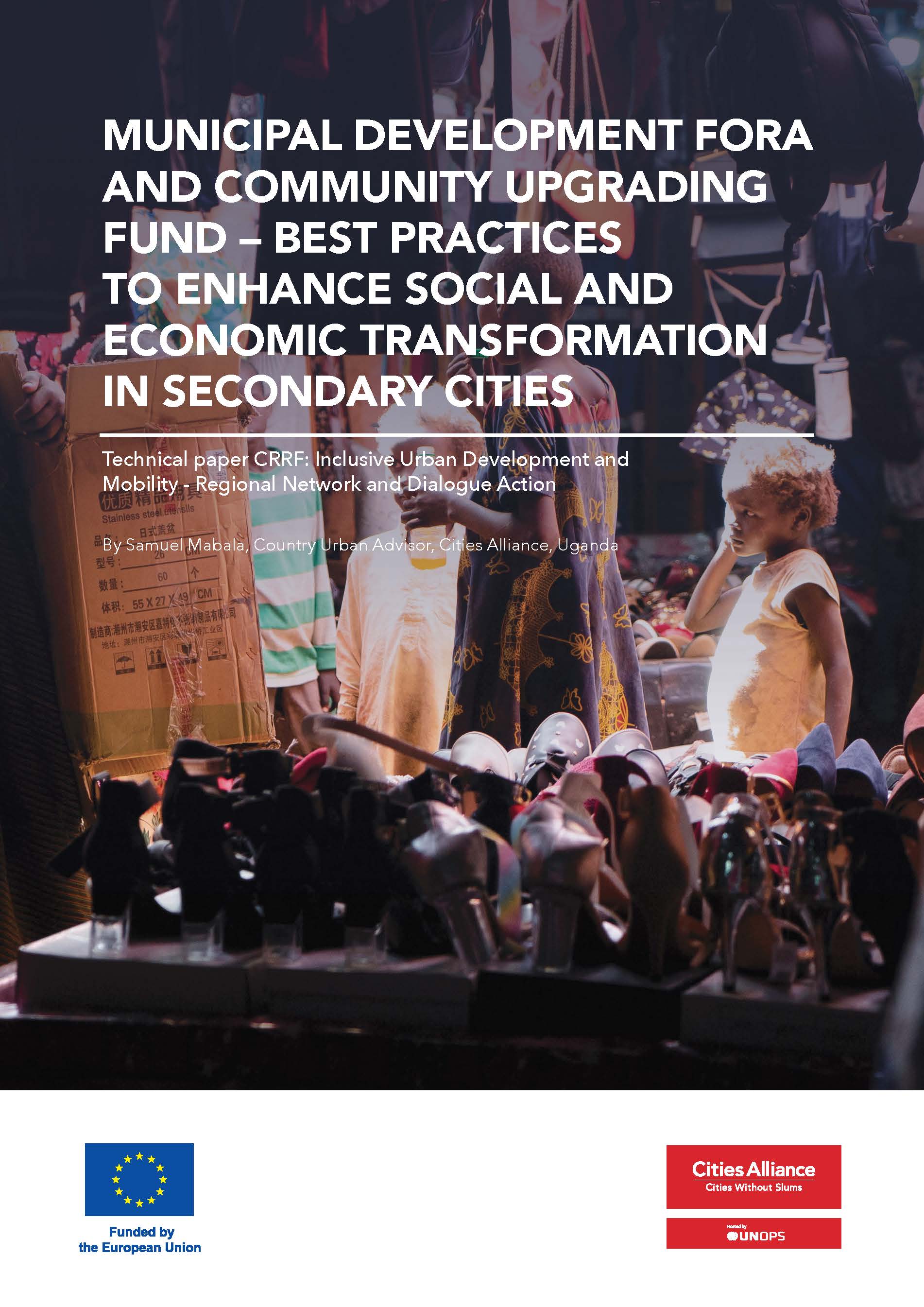- Who We Are
- How We Work
- Regional / Country Initiatives
- Legacy
- Core Themes
- Working Groups
- Portfolio & Results
- Newsroom
- Resources
Municipal Development Fora and Community Upgrading Fund – Best Practices to Enhance Social and Economic Transformation in Secondary Cities


Cities in the Horn of Africa are experiencing high levels of urbanisation. This trend goes beyond capital cities; secondary cities are also seeing rapid demographic growth as a result of high rural-to-urban migration, natural increase, and uncontrolled expansion of urban areas into the rural hinterland.
This issue is especially pressing for cities in the Horn of Africa, which hosts one fifth of the world’s refugees. Displaced populations tend to settle in areas where the urban poor and other migrants live, which are typically slums or informal settlements with limited capacity to deliver services and informal economies.
Urban authorities must recognise and involve the urban poor as key partners in urban development – one of the foundations for inclusive good urban governance.
This technical paper outlines two mechanisms that can enhance partnerships and social cohesion in secondary cities: the Municipal Development Forum (MDF) and the Community Upgrading Fund (CUF), with case studies from Uganda and experiences from Liberia.
The multi-stakeholder MDF serves as a platform for participation and dialogue among urban citizens, including host communities and displaced populations, to exchange knowledge and inform local policies, plans, and budgets. These fora are strong mechanisms for promoting social cohesion and improving living conditions in the city.
The CUF is a facility that supports small community infrastructure improvements in slums and boosts progressive transformation in urban communities and likewise improves living conditions.
Both mechanisms bring government and residents together to form a development partnership. By working together, with government and communities each providing specific services, the process of formalising the city begins. These partnerships build or rebuild the necessary relationship structure to lay the foundations for establishing a municipal identity striving for common projects.
This paper highlights core principles that are universally relevant, with much scope to develop a solution specific to the needs of different contexts.
It is a companion technical report to the first workshop organised through the CRRF Inclusive Urban Development and Mobility – Regional Network and Dialogue Action implemented by Cities Alliance and financed by the European Union Trust Fund for Africa (EUTF).


